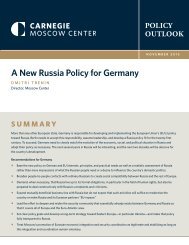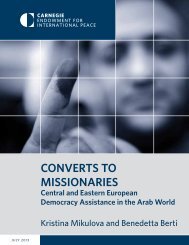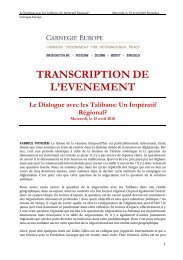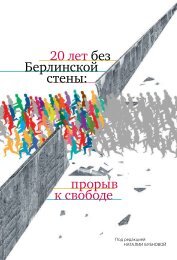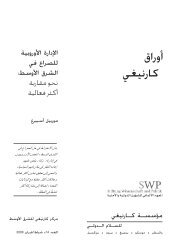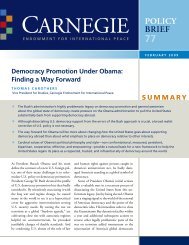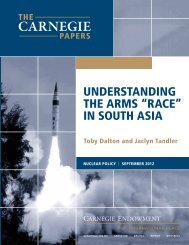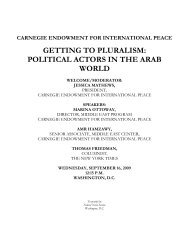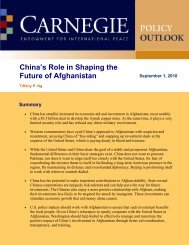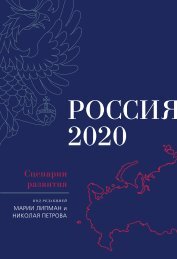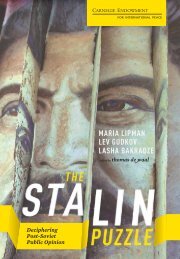Will Pakistan Break Up? - Carnegie Endowment for International ...
Will Pakistan Break Up? - Carnegie Endowment for International ...
Will Pakistan Break Up? - Carnegie Endowment for International ...
You also want an ePaper? Increase the reach of your titles
YUMPU automatically turns print PDFs into web optimized ePapers that Google loves.
Remarks Not Checked Against Delivery<br />
especially implementation of the 1973 Constitution leading to a meaningful devolution of<br />
power to the provinces.<br />
Now, turning to the Pashtuns, it is necessary to bear in mind that the 41 million<br />
Pashtuns on both sides of the border have a long history of unity.<br />
Prior to the British Raj, the Pashtuns had been politically unified since 1747 under<br />
the banner of an Afghan empire that stretched eastward into the Punjabi heartland up to the<br />
Indus River. It was traumatic <strong>for</strong> them when the British seized 40,000 square miles of<br />
ancestral Pashtun territory between the Indus and the Khyber Pass, embracing half the<br />
Pashtun population, and then imposed the Durand Line, <strong>for</strong>malizing their conquest. The<br />
British subsequently handed over this territory to the new government of <strong>Pakistan</strong> in 1947<br />
after a controversial 1947 referendum in the Northwest Frontier Province. The referendum<br />
was administered under the control of British colonial authorities who openly favored the<br />
accession of the province to <strong>Pakistan</strong>. Out of 572,799 eligible voters, only 292,118 voted.<br />
This was because the referendum was boycotted by many Pashtuns. The Pashtun parties<br />
that had overwhelmingly won the 1946 provincial elections wanted the referendum to<br />
include the option of an independent “Pashtunistan” in addition to a choice between India<br />
and <strong>Pakistan</strong>. The leaders of these parties were imprisoned prior to the referendum and<br />
their newspapers banned after their “Bannu Declaration” calling <strong>for</strong> “Pashtunistan” on June<br />
22, 1947. Out of those Pashtuns who did vote in tribal gatherings convened by the British<br />
authorities, all but 2,894 voted <strong>for</strong> <strong>Pakistan</strong>. Thus the issue was decided by 50.5 percent of<br />
the eligible electorate amid charges of blatant rigging that still resonate today.<br />
After the creation of <strong>Pakistan</strong>, Zahir Shah’s monarchy, Mohammed Daud’s republic<br />
and the short-lived Communist regime in Kabul have all challenged <strong>Pakistan</strong>’s right to rule<br />
6




